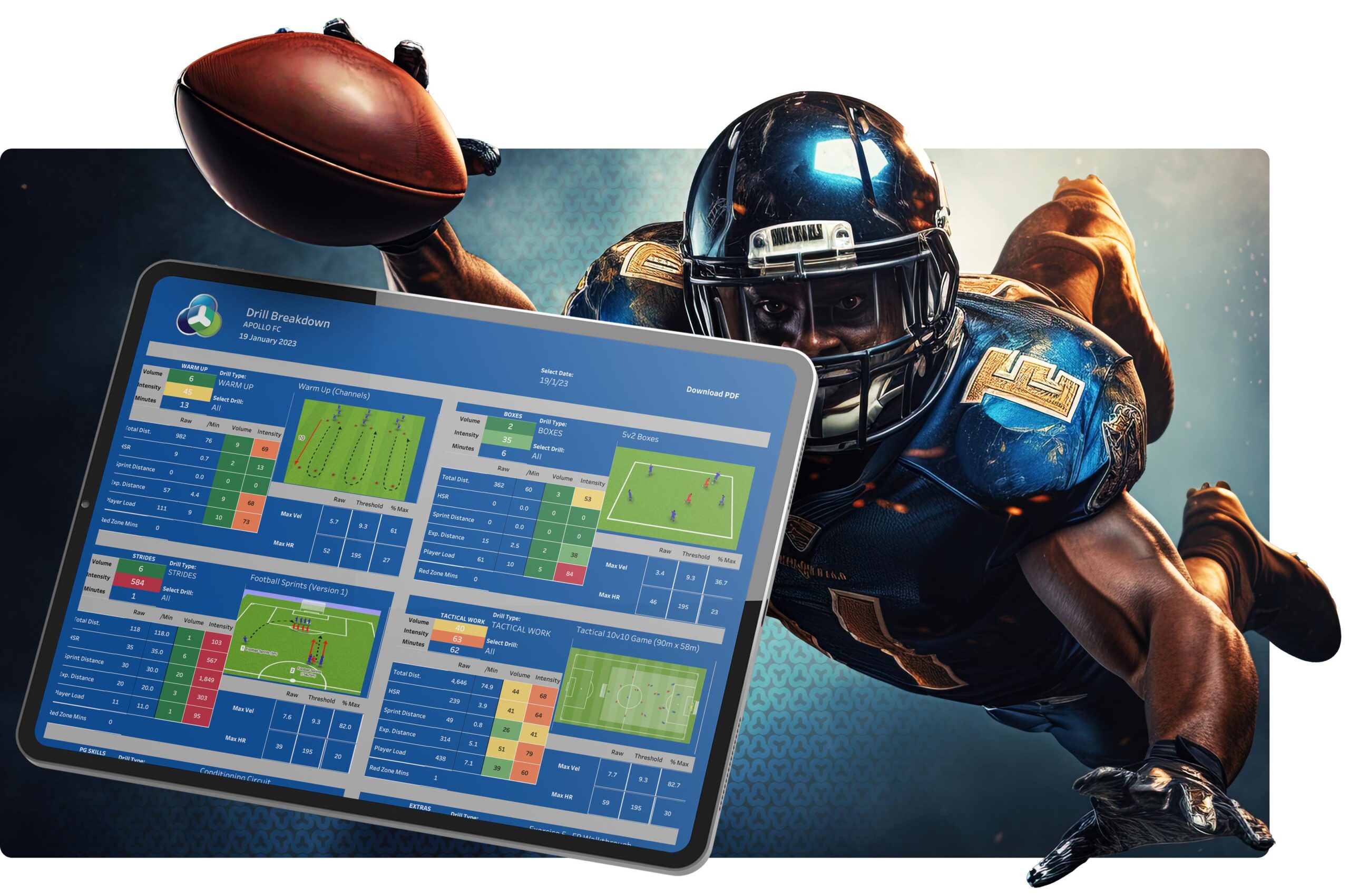Influencing Decision Makers:
Using Data Visualization To Inform Coaching Decisions & Maximize Training
In any sports team, the responsibility for important training-related decisions usually lies with the coaching staff, with the ultimate decision maker often being one person – the Head Coach.
But how can coaches be confident that their training programs are directly improving team performance? How do they know for certain that the decisions are appropriate to the current status of the players? Are the training sessions they design supporting individual player progression, or put those players at unnecessary risk of injury?
Ultimately – are coaches receiving the data they need to ensure that their decision making is as well-informed as possible?
Even at the highest levels of sport, we see impactful training decisions being made in isolation, mainly because data isn’t flowing quickly enough to the key decision makers. Medical staff, sports scientists and S&C practitioners have to ask themselves a question; is the data they collect really making any difference?
It is increasingly apparent that bridging gaps in data – and communicating that data – is the key to enhanced performance. Apollo’s bespoke reporting and data visualizations can do exactly that, in order to influence decision makers, optimize the training process, and increase the probability of winning.
Part 3: Training Evaluation: Reports Informing Future Training Decisions
Following a training session, coaches will assess the performance levels achieved by their players in relation to specific training targets. This enables them to identify whether the aims and objectives of the session have been achieved.
Monitoring training performance provides coaches with a greater understanding of both the rate and the level at which players are adapting to the training program, and helps to identify those players who are either fast or slow responders. This then allows the coach to make adjustments to the development program, and improves the overall effectiveness of the training process.
Training evaluations can only be accurate, however, if coaches are receiving ALL relevant training information – either technical, tactical, physical, or psychological – quickly, and for this to be achieved, effective reporting is essential. Coaches need clear data imagery which promptly evaluates training performance and identifies the impact that training is having on the team – and in this capacity, Apollo provides real competitive advantage.
Apollo’s adaptable platform enables bespoke reports and unique data visualizations to be created which allow coaches to evaluate the quality of their sessions, and gives them the information they need to make educated future decisions. Our reports have the capability to accurately inform coaching content, ensuring that the modifications that coaches make to the program have a greater likelihood of being successful.

WHAT APOLLO CAN DO FOR YOU
ApolloV2 is not a traditional ‘one size fits all’ athlete management system. Instead, we are a highly adaptable platform which can create customized dashboards specifically tailored to each team’s individual needs and unique way of working.
Our system equips teams with the ability to generate custom-made data visualizations without software code. We have more API’s than any other system, which allows us to collect data from the multiple tools and systems staff are using, and then combine it efficiently to allow coaches to make informed decisions with their players.
We have Power Bi and Tableau integrated into our ecosystem, which enables us to build bespoke, best-in-class data reports designed to meet specific requirements and ensure that coaches receive the data driven insights they need, to inform decision making and influence positive change.
To learn more about using ApolloV2 for performance enhancement, email – alamb@apollov2.com.


Recent Comments